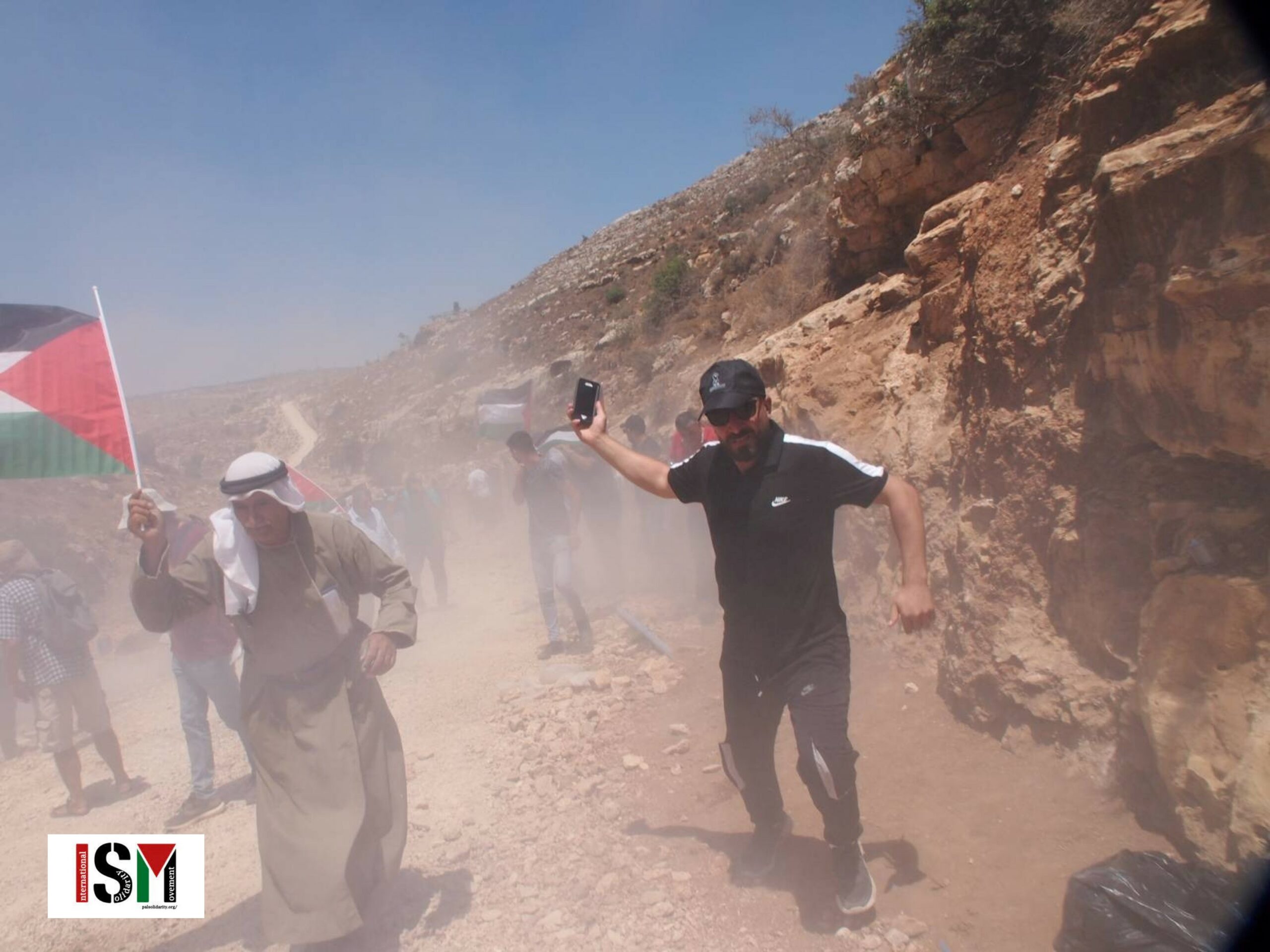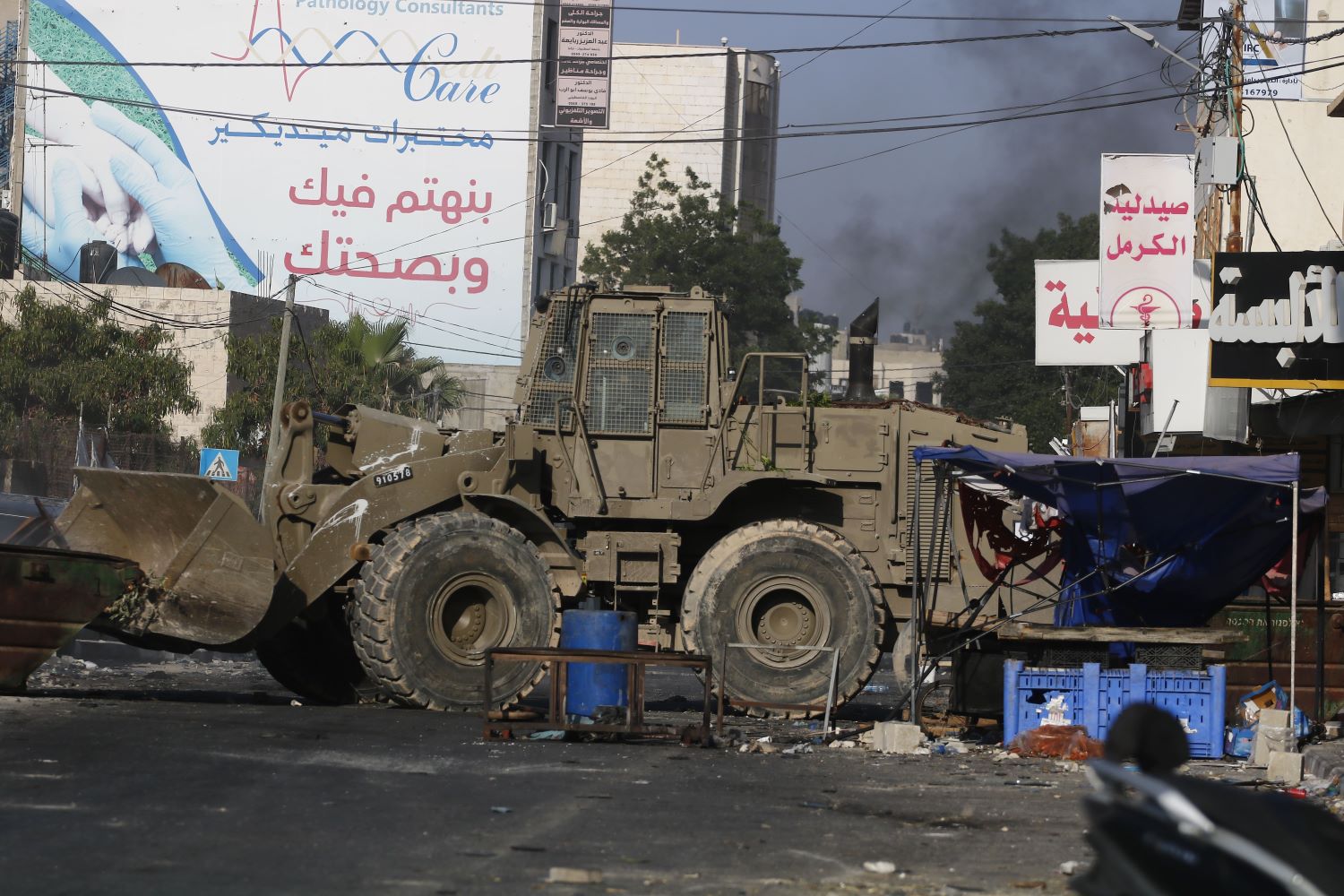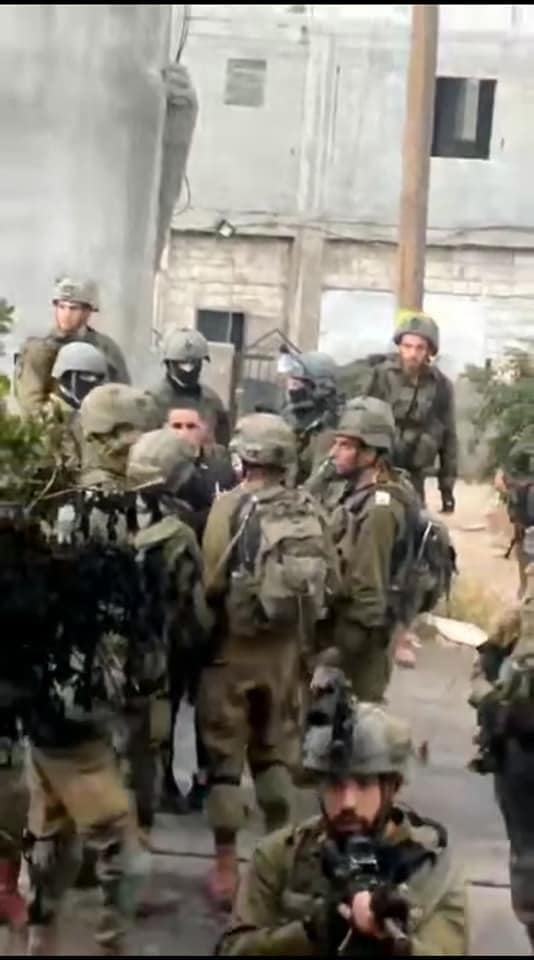-
Israeli army violently represses peaceful Friday demonstration
On Friday, August 4, a peaceful demonstration was violently attacked by the Israeli army around the West Bank village of Deir Istyia, Salfit governorate. About 30 Palestinians from Deir Istiya, including women, the elderly and children were on their way to the land north of the village, accompanied by a number of Israeli and international […]
-
Invasion of Jenin Camp – A Photo Journal.
By ISM volunteer D. N. When I arrived in Jenin, on Tuesday July 4th, the city was a battlefield, the streets were destroyed and burnt, tear gas canisters and bullets lay on the ground, the air was filled with smoke, the sound of live bullets, the screams of young men. The residents were in a […]
-
Israeli Occupation forces Shoot Children in the Head and Then Arrests Them in Nabi Salah
6/9/2023 Nabi Salah, Occupied Palestine, In the Aftermath of the Killing of infant Mohammad Tamimi the occupying forces invaded the sleeping village of Nabi Saleh again early Friday morning and aressted Wissam Tamimi, who had just turned seventeen, and twenty-two-year-old Mohammed Fadel Tamimi, from their homes. Both suffer from severe head injuries. The Israeli military […]
Action Alert An Nabi Saleh Apartheid Wall Arrests BDS Bethlehem Bil'in Cast Lead Demonstration Denial of Entry Ethnic Cleansing Farmers Gaza Global Actions Hebron House Demolition International law Israeli Army Jerusalem Live Ammunition Nablus Ni'lin Prisoner Ramallah Rubber-coated steel bullets Settlement Settlers Settler violence Tear-Gas Canister Video



